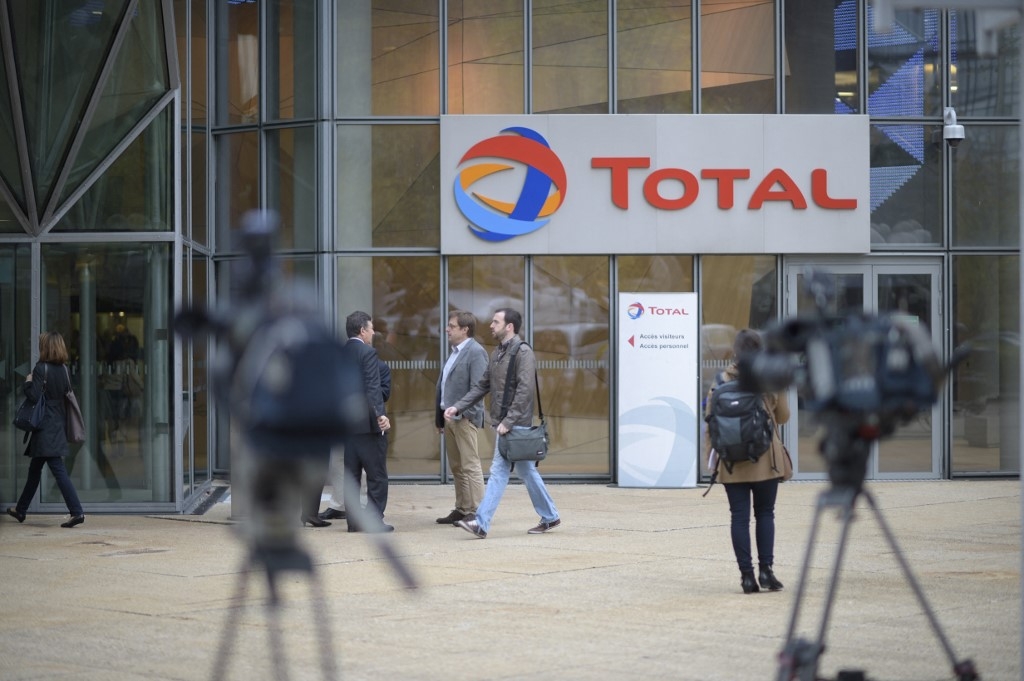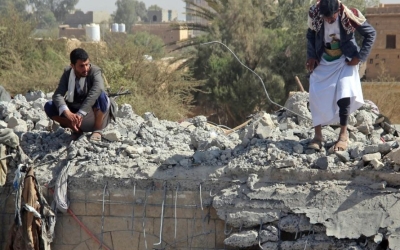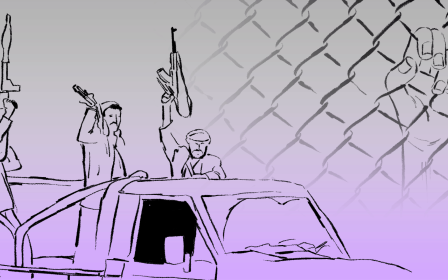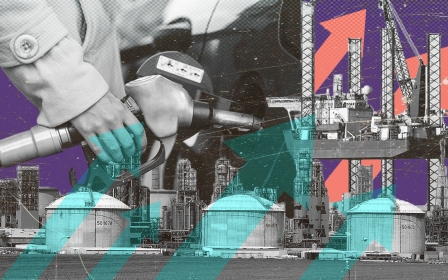Yemen: Torture victims accuse Total of breaching French corporate duty law

Lawyers for two men allegedly detained in secret and then tortured by Emirati forces at a gas plant used as a prison in Yemen have filed a lawsuit against French energy giant TotalEnergies.
The French firm is the largest shareholder of Yemen LNG, the company operating the Balhaf gas liquefaction plant in the southern governorate of Shabwah, where both men were taken in 2018 and 2019, they said.
'Total must take responsibility for the violations committed by UAE forces in Balhaf'
- Alexis Thiry, MENA Rights Group
In the suit filed in the Paris Court of Justice on Wednesday, the lawyers argue that TotalEnergies failed to identify and prevent human rights violations as required by a 2017 French law.
Large French companies under the law must publish an annual plan to establish and mitigate the impacts on human rights and the environment of their work or those of their subsidiaries.
“Total must take responsibility for the violations committed by UAE forces in Balhaf,” said Alexis Thiry, legal advisor for the Geneva-based MENA Rights Group which represents the men.
New MEE newsletter: Jerusalem Dispatch
Sign up to get the latest insights and analysis on Israel-Palestine, alongside Turkey Unpacked and other MEE newsletters
Thiry said it was “disappointing” that the company had continued to exclude the plant from its vigilance plan “despite being informed of gross human rights abuses on the site on multiple occasions”.
A TotalEnergies spokesperson told Middle East Eye: "As a minority shareholder, TotalEnergies SE does not have a controlling interest in Yemen LNG, which is therefore outside the scope of its vigilance plan.
"The situation in Yemen is of course a source of concern for our company. In line with its Code of Conduct, TotalEnergies places respect for human rights at the heart of its operations, expressed its concern to Yemen LNG and urged the company to inquire about the situation with the Yemeni authorities."
Recurring abuses
Production stopped at the plant in early 2015, as the war in the country spread and fighting started around the site.
In March 2017, the Yemeni government requisitioned some of the facilities for the coalition forces supporting the government which were then taken over by Emirati forces.
Since then, rights monitors and journalists have reported recurring human rights violations at the site. In 2019, the UN identified the plant as part of a wider network of detention facilities in the south where human rights abuses were being committed.
On its website, TotalEnergies said in 2019 that it did not have a controlling interest in the plant and “does not intervene directly”.
“Total does not have any specific information on how the coalition is using the requisitioned areas,” the company said at that time.
Since then, MENA Rights Group said it had sent a formal notice to the company detailing the abuses. The firm, according to the lawyers, responded that it was not bound by due diligence obligations at the plant because it doesn’t control Yemen LNG.
This is the second time the company has been taken to court over the due diligence law in relation to human rights allegations.
In 2019, six civil society organisations filed a lawsuit accusing the company of failing to address the risks to local inhabitants from an oil project in Uganda. Total has denied the allegations. The case is ongoing.
Louis Cofflard, a second lawyer representing the two men, said the latest case “clearly illustrates the multinational’s strategy of disclaiming legal responsibility when serious human rights violations are revealed and linked to the activities or infrastructure of its subsidiaries”.
This article is available in French on Middle East Eye French edition.
Middle East Eye delivers independent and unrivalled coverage and analysis of the Middle East, North Africa and beyond. To learn more about republishing this content and the associated fees, please fill out this form. More about MEE can be found here.





